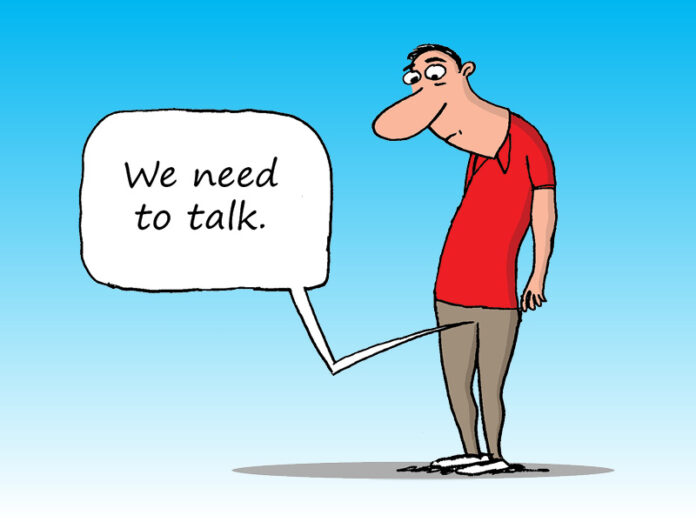
Pecker. Weiner. Manhood. Over the years, the penis has earned a colourful array of nicknames and an even more colourful array of jokes. But for all the attention we direct below the belt, surprisingly few of us really understand how this important organ works—and what it means when things start to go wrong.
Is your Johnson acting up? Here are three things it could mean for your overall health:
1. Cardiac Function & Blood Flow
The penis contains the narrowest arteries in a man’s body. Measuring somewhere between 1 to 2 mm in diameter, they can be up to nine times smaller in area than the coronary blood vessels in the heart. This means if you suffer from high blood pressure, stress, diabetes, high cholesterol, or any other vascular system damage, your penis is often the first to know about it. The result is a gradual deterioration of erectile function. In many cases, the decline of things down below is followed by damage to the other areas of the body that rely on the arterial blood supply, including the heart. There is evidence from hundreds of studies that links vascular erectile dysfunction with an increased risk of a heart attack 7 to 10 years later. It turns out your penis may be the key to your heart in more ways than one.
2. Testosterone
Your erectile function is strongly dependent on the amount of testosterone in your blood. And your testosterone level is, in turn, dependent on your general state of health. This means the healthier you are, the longer it will take for your testosterone level to decline — and the longer you can last in bed.
But the relationship between health and testosterone works both ways. Acquired illnesses and poor overall health can reduce the level of this potent hormone in your bloodstream. But testosterone, or a lack thereof, can also cause a range of different ailments, including metabolic disorders (such as diabetes and vascular diseases), sexual issues, exhaustion, loss of strength, muscle weakness, joint complaints, depressive symptoms, excessive sweating and weight gain, just to name a few.
3. Mental Health
Problems down below can be indicators of problems up above. Accompanying the many different physiological causes of premature ejaculation are some important psychological ones, including depression. The brain’s ability to regulate ejaculation is dependent on the neurotransmitter serotonin — the happiness hormone. If there is too little serotonin available, as is often the case in depression, ejaculatory control disappears and your orgasms can surge on like unleashed hunting dogs chasing a hare. It might sound counterintuitive, but becoming over-enthusiastic in bed could be the sign of a loss of enthusiasm in general.
So, pay close attention to your penis — especially when things go wrong. Chances are, he’s trying to tell you something.
Dealing With The Dreaded Droops
- Ditch the strong stuff: Recreational drugs — including alcohol, marijuana, cocaine, LSD and the like — are some of the most common erection crushers.
- Check your meds: There are several medicinal (and toxic or poisonous) triggers of ED. Many medications, particularly those treating the cardiovascular system and metabolic diseases, cause erectile dysfunction as a side effect.
- Try orthomolecular therapy: This can be a great option if your ED is mild or in the early stages. This therapy involves administering high doses of Argine, an essential amino acid that is a highly capable blood vessel expander.
- Talk to your psychologist: Seeing a sexual therapist is often the most effective way to deal with the droops. It can take eight to 12 sessions to get to the heart of the issue.
- The little blue pill: If your ED isn’t psychological, Viagra and other PDE5 inhibitors, such as Cialis, Levitra, and Spedra can be a good option. Ask your doctor which pill might be right for you.
- Extracorporeal shock wave therapy: This newcomer to the ED treatment scene is much less aggressive than it sounds. Bombarding erectile tissue with low-dose shock waves over a number of sessions, this painless treatment stimulates the growth of new blood vessels in the tissue — with excellent results.
- Pelvic floor training: Muscular training of the pelvic floor improves erectile function, even in older men. These exercises are so simple they can be done in an office chair!
- You are not an erectile robot: To be diagnosed with erectile dysfunction, you must be unable to perform sexual intercourse at least 70 per cent of the time over a period of six months or longer. Not every droop is considered a diagnosis.













